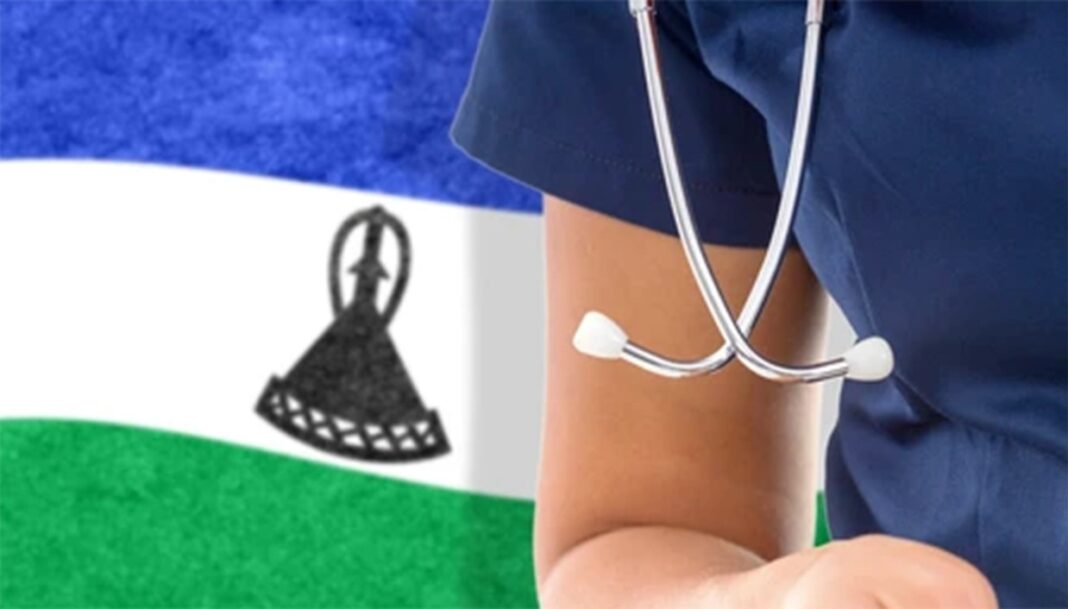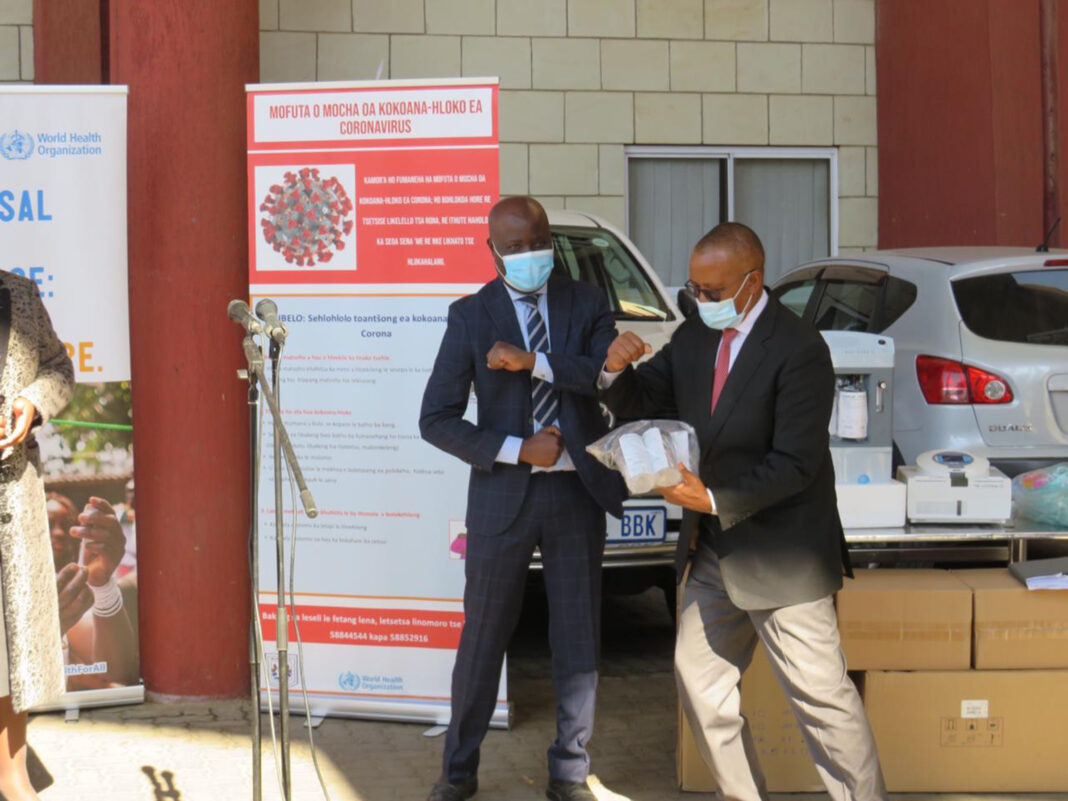By Neo Kolane
For their entire lives, the communities of Ha Dinizulu, Masaleng and Ha Koporale in the Thaba Tseka distrct have never had a health facility in their midst and have to walk up to three hours to receive medical attention at a clinic Likalaneng. And experts suggest, by not providing health services, the state is failing its obligation of public health, which could ultimately have a bearing on the right to life.
Each of the three villages has about 40 households who have lived there for generations. The inhabitants there are in dire need of health services which are hard to receive given the fact that they have to travel long distances to access health care.
A resident of Masaleng Masienyane Ntaolane, said the nearest clinic is at Likalaneng, a three-hour walk from his village, while the nearest hospital is at Mantṧonyane, also in the district of Thaba Tseka.
The octogenarian who makes a living as a livestock farmer, lamented that it is really painstaking to reach the two health facilities in the event of ill health.
Typical rural folks, some of the villagers earn their living from selling traditional home-brewed beer while others subsist from trading in livestock, practices which enable them to pay for health services.
The reality of lack of health care services has casualties. One of them is ‘Maitumeleng Kabi, who lost her toes after getting hurt while collecting firewood in 2018. A huge trunk dropped on her feet while she was chopping a tree. She believes, had she received emergency medical attention in time, her two toes would probably have been saved.
The 34-year old woman suffered the tragic accident around 3:00pm but it was only at 9:00pm when she was ferried to Roma hospital where her toes were eventually amputated.
Her condition has made it difficult and uncomfortable for her to attend medical check-ups. Walking long distances causes her injured leg to swell.
“It’s a real headache for me to travel such a long distance when going for a medical check-up. There is no clinic for treatment nearby,” she explained.
Her sentiments were echoed by ‘Mamotheo Leteba who added that, in some instances, sick people have to be carried on homemade stretchers to get to the clinic.
The chief of Ha Dinizulu, Maime Maime, is also tormented man by the lacking health services in their vicinity. On Friday last week, his son was in bed with symptoms of flu because could not make it to Likalaneng Clinic for medical care due to unavailability of transportation, a cause for serious concern as the country struggles with the Covid-19 pandemic.
Maime added that fights usually break out among cattle herders, leaving some seriously in the process. The unlucky ones succumb to their injuries on the way to the clinic.
This heart-wrenching situation is taking its toll on overworked village health workers who are already burdened with helping expectant women and nursing mothers
One of them, ‘Majoalane Khama, has been performing midwife services for the past three years, and she concedes it is not at all easy for pregnant women to the Likalaneng Clinic for prenatal check-ups.
The United Nations Universal Declaration on Human Rights states: “Everyone has the right to a standard of living, adequate for the health and well-being of himself and of his family, including food, clothing, housing and medical care and necessary social services.”
The declaration also provides for security in case of physical debilitation or disability, and makes special mention of care given to those in motherhood or childhood.
According to the director general of WHO, Tedros Adhanom Ghebreyesus, the right to health has been central to WHO identity and mandate in order to achieve universal health coverage.
“The right to health for all people means that everyone should have access to the health services they need, whenever and where ever they need them without suffering any financial hardship. No one should get sick and die just because they are poor or because they cannot access the health services needed.
“Good health is also clearly determined by other basic human rights including access to safe drinking water and sanitation, nutritious foods, adequate housing, education and safe working conditions.
“The right to health also means that everyone should be entitled to control their own health and body, including having access to sexual and reproductive information and services, free from violence and discrimination,” Ghebreyesus urged.
In his 2018/2019 budget speech, then minister of finance, Moeketsi Majoro revealed that the health ministry was determined to achieve universal health coverage while life expectancy stood at 56 years with health coverage of 67 percent.
The target, according to Majoro was to achieve 100 percent health coverage by 2020. That, he added, would be possible by improving accessibility and affordability of health services which would be achieved by decentralisation of public health care.
“The focus is to build health posts across the country with the target of having at least one health post per electoral division. This will reduce long distance travel to health centres which is acute in the mountainous districts of Mokhotlong, Thaba Tseka, Qacha’s Nek, Quthing and parts of Mohale’s Hoek.
“Emergency services have also fallen behind and are beginning to reverse some of the gains made. Therefore, the policy of emergency services will be drafted and approved during the 2018/19 fiscal year,” Majoro said.
At 11 percent of the national budget, health consumes the next largest portion after education. M2.4 billion was allocated to the health ministry, from the appropriated annual budget of M23.8 billion in 2021/2022.
In his 2021/2022 budget speech, the minister of finance, Thabo Sophonea promised the government intended to equip the health sector with required workforce, improvement of health infrastructure such as intensive care units and medical equipment.
“The village health worker system is still the bulwark of primary health care and needs nurturing and fortification. We will enhance capacity of regional hospitals with the requisite workforce, equipment and other resources to cope with increasing demands on the health system,” Sophonea remarked.
He announced plans to roll-out implementation of village health workers policy programme with local government structures. The Village Health Policy of 2020’s overall objective is to facilitate and provide a supportive environment for community participation and community-based delivery of quality health service. It also seeks to establish outreach centres at every electoral division.
According to the National Constitution, “Lesotho shall adopt policies aimed at ensuring the attainable standard of physical and mental health for its citizens, including policies designed for reduction of stillbirths and of infant mortality for healthy development of the child, improve environment and industrial hygiene.”
In a bid to establish if the plight of the three communities of Thaba Tseka be regarded as a violation of a right to health care, theReporter picked the brain of public interest litigation officer, Mokitimi Tšosane, who argued that Lesotho’s Constitution that does not recognize fundamental socio-economic well-being as rights.
“Instead, these essential rights are provided as non-justiciable under a chapter dealing with principles of state policy.
“The Constitution places the realization of state policy on the executive and as such is purely a political brand. The Constitution places these rights at the sole discretion of the executive, which makes it harder for the judiciary to enforce and to hold the government to account. But, by not providing such services, the government is failing its obligation of public health, which ultimately has a bearing on the right to life,” he warned.









